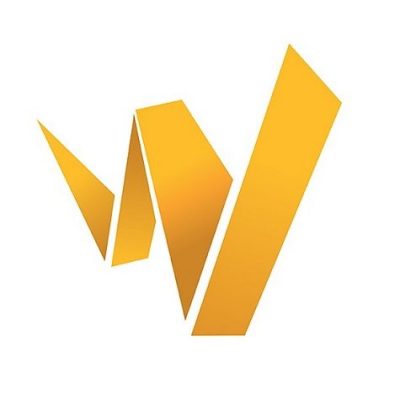Software developers are paid really well. Sounds familiar? You must’ve heard it at least once when talking to your friends about working in the IT industry. Let’s take a look at what entering the professional world of information technology is about.
The standard entry threshold to the IT industry has changed considerably in recent years, accompanied by a significant growth in the demand for skilled professionals. To bridge the job market gap, both state and private institutions have decided to launch special courses designed to help their graduates find employment as software developers much faster. There are many training programs to choose from. Each requires different investments in terms of time and money. We shouldn’t worry too much about the latter factor, though. If we really consider becoming a professional software developer, we should treat such training opportunities as an investment that will pay off sooner than we think. The most important thing is to choose the right field and check if your skills are compatible with the requirements of the field chosen. Contrary to what we might have been told for many years, highly developed mathematical skills are not a prerequisite to be fulfilled by every software engineer-to-be. Of course, those who are really good with numbers will surely benefit from their talent, but those who are not that skillful in mathematics still have a good chance of finding fulfilment in the profession. For instance, a programming language that doesn’t require familiarity with the mysteries of mathematics is Python in the case of which many processes are simply automated. Regardless of our qualifications, we need to remember not to approach this aspect with fear and not to give in to concerns about it. If we keep our cool, we’ll find a solution to everything — all it takes is hard work and patience.
The skills and qualities of a good software developer
How to become a software developer then? What really affects the way our career in software development will unfold? It’s mainly about determination and persistence in learning and developing new skills and abilities. Like every field we haven’t come across before, programming will require a certain degree of sacrifice and diligent learning. Especially when we find ourselves at the stage of looking for our first job in the profession. Then, the future employer will have to make their decision based on how we perform at the interview. The sooner we start building our portfolio, using e.g. GitHub, the more we’ll be able to offer during the recruitment process — and this is something employers look for and value. The most important thing is to prepare for the interview as well as possible — you’ll be most likely asked to do some test, designed to check your skills and knowledge. Numbers speak for themselves. It has been reported that in 2020, the number of jobs for software developers in the EU and the US will be close to 600 thousand. It is also said that in Poland alone there is a shortage of employees, with around 50 thousand vacancies. The odds of finding a job in the industry are quite good. All you need is to have a clear goal and to stay committed to pursuing this goal.
What programming language to learn?
Particular fields of programming can be divided into several categories. Deciding to go for the right one is essential to the satisfaction with our work. PHP is a programming language that may be easy to understand, but is certainly not a tool for just basic operations. The more you get to know its environment, the better use you’ll be able to make of it. It becomes a really powerful tool in the hands of those who’ve decided to plumb its mysteries. It is also the most common choice when it comes to developing web applications. It is considered a so-called back-end solution, sharing the podium of the most popular languages in this domain with Java and Python. The former of the two is used in building applications of different levels of complexity. It’s popular among businesses because of the offered possibility to launch applications in both Windows and Linux environments, which means it doesn’t need additional expenditure on infrastructure. The latter of the two is considered, in turn, the best programming language to start learning coding with. This is because its user-friendly environment and the said automation of the processes it utilizes.
Back-end developers spend a lot of their time on debugging, which involves careful and meticulous removal of errors in a code until the code takes the best form possible. They also develop appropriate systems that let users interact with websites in the most convenient way. Besides, they also work quite a lot with databases. Databases are used on a regular basis in big projects, so being at least somewhat familiar with some of them can play a part here. Our team uses e.g. Redis, MongoDB, and MySQL. Do keep in mind that there exist database management systems, and they are indispensable in back-end (and many other) operations.
As for the domain of front-end — here, a developer’s work involves e.g. designing the appearance of websites and user interfaces. It is therefore good if the developer demonstrates creativity and a sense of aesthetics. Here, it is essential to know HTML, CSS, and JavaScript. Otherwise we simply won’t be able to work as front-end developers. So if you have some artistic aspirations, you may well put them to use in this field. It may be something just for you.
You shouldn’t follow in the footsteps of others, but rather think carefully about the environment that suits you best. Nobody would like to spend a year only to realize that they don’t get satisfaction from what they do.
How to learn and where to start?
Let’s go back to the aspect of the available opportunities to gain the necessary knowledge. There are many paths of development to select from. The only limiting factors are time and money we’re able to spend. Remember that none of the presented alternatives is a bad choice, but it’s up to you to decide which option will work for you best. These options can be divided into 3 clear categories.
Free learning:
There is a number of interesting variants to choose from here. One such variant includes YouTube tutorials, which will get us behind the scenes of working in IT. They do differ in terms of the quality and the level of knowledge they offer, but if you do some browsing, you can find some really valuable content. We can also come across free induction web meetings or enroll in a free online training program. We need to keep in mind, though, that not all study aids available to the public will be clear and reliable. It’s important to make sure not to develop bad programming habits as it takes a long time to unlearn them later on. So if you wish to go for free learning opportunities, you need have the patience to browse through a range of websites and carefully analyze everything you come across, or enroll at a public university. Many experienced software developers speak favorably of codecademy.com, which offers free resources to those who learn languages such as HTML, CSS, JavaScript, Python, PHP and other. We can expect to get active feedback on our progress and on the areas where we should improve. There’s also an option to buy a Pro plan, which includes, among others, access to live online classes.
Another place that offers access to a considerable amount of free resources such as video content, tests, and records of lectures is the website of the Massachusetts Institute of Technology. We won’t get any course completion certificate or diploma, but the library of resources is vast and accessible completely free of charge. And you don’t need to register to access it. We can therefore gain a lot and expand our knowledge without spending a dime. Sounds promising, doesn’t it?
Paid distance education:
In this case, we can pick something from the wide range of books on programming. Professional literature published over the years comes in plenty so you won’t have any problem in choosing something for you. But you should make sure to buy publications based on the most recent versions of programming languages and the latest developments in the IT industry. One highly recommended title is “Clean Code: A Handbook of Agile Software Craftsmanship”. It’s a user-friendly guide through the most important aspects of software development. It was written by Robert C. Martin, who is not only a world-class software engineer but also a highly skilled and inspiring speaker. On the Internet, you can find many platforms offering online courses. At a small fee, you’ll get access to knowledge databases, tests, well-thought-out video content, and support of communities whose members are willing to help each other out in solving different problems and ready to explain the nature of the difficulties you may come across.
Through-and-through education:
This is mainly about full-time courses with a focus on each participant as an individual. It appears that all sorts of bootcamps and workshops (usually a few to over a dozen weeks long) are highly popular as they can provide you with a lot of relevant knowledge. There’s always an option to enroll at a public university and pursue and finish programming under the supervision of academic teachers.
Full steam ahead! A career in IT is waiting for you!
It is actually true to some extent that it doesn’t really matter where and how you learn the knowledge and skills required in software engineering. If we are determined to develop our skills and find a job as a software developer, any of the options described above may be just as good. For some, a professional and paid training will be the right solution to acquire the necessary skills, while in the case of others, persistence and hours spent with video tutorials may be enough.
Think about the most important aspects of working as a software developer, become familiar with the available online resources or talk to your friends who have decided to take up a career in this field. Once you make up your mind about the area of programming you’d like to explore, it’s enough to choose the form of learning that suits you best and make the first — most important — step towards your new career.




